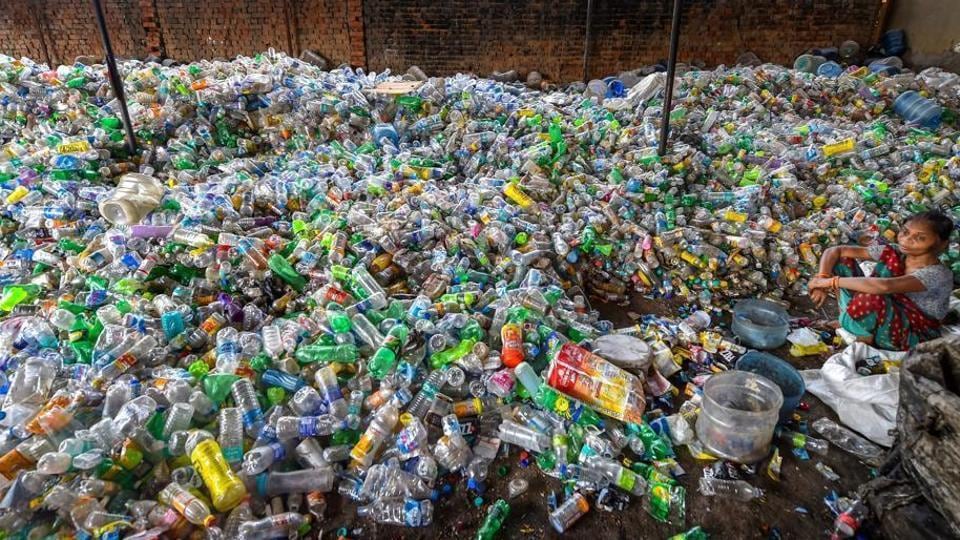The need for plastic de-addiction
The article has been authored by Tarini Malhotra, Grade 11 student & secretary of environmental initiatives, The Shri Ram School, Moulsari, Gurugram and founder, Nai Subah Foundation.
“It cannot be right to manufacture billions of objects that are used for a matter of minutes, and then are with us for centuries.”--Roz Savage (environmental advocate, writer)

The catla fish swimming serenely could not have foreseen the plastic band wrapping around its body and entrapping it. The sea turtle feasting on what seemed like a new delicacy could not have imagined that a plastic bag would harm its life, choking it, even killing it.
As plastic waste (literally) takes over our lives, here’s a reality check: There is a lot to do in the field of environment. The message in the bottle is bleak. And the bottle may be made of plastic and that further aggravates the situation.
Plastics are contaminating our oceans and waterways and killing marine life – they have even entered the food chain which is affecting all of us. We are literally consuming plastics.
Plastics are the cheapest, most readily available, and most versatile substances we use in our daily lives. But they are also one of the most dangerous manmade materials – littering our streets, leaching into our soil, entering our groundwater and rivers and infiltrating our oceans. The impact of plastic waste will remain with us and affect several future generations.
We as a species have not been able to live in this world with minimal impact like other species do. But as American marine biologist, Sylvia Earle says, “It is the worst of times, but it is the best of times because we still have a chance”. The present offers the ultimate test – we need to sacrifice something today for future generations. Can we do it?
When the government of India banned the manufacture, import, stocking, distribution, sale, and use of identified single-use plastic items from July 1 this year, it seemed like a big step forward.
And, to some extent, it is. The ban is a small, yet critical step forward for India, whose major river, the Ganga, ranks in the top 10 list of rivers that empty plastics into the seas. It means that a greater number of people will start thinking about plastic waste and will, hopefully, be spurred into action.
But when it comes to the effectiveness of the ban, many experts are sceptical – and rightfully so. The ban may encompass a wide range of articles including plastic straws, plastic utensils, thermocol, plastic wrapping, packaging materials and, of course, plastic bags with a thickness of fewer than 120 microns. But this is just a drop in the ocean. The ban disregards multi-layered packaging which envelops a vast majority of the products we use – from chips to shampoos.
However, the fact that the list is not comprehensive enough is not the only reason why some people are not entirely convinced of the impact of this ban. The challenge is the actual implementation of the ban. For example, it enforces that the production of plastic bags of less than 120 microns cannot be carried out, but what guarantee do we have about the thickness of a particular type of plastic bag and how it has been regulated?
Further, the ban says that all multi-layer packaging will come within extended producer responsibility (EPR) under which companies manufacturing such material must take it back and send it for reprocessing. This seems positive but it is based on self-declaration, and there is nothing available in the public domain to assess the accuracy, reliability, and empiricism of the results. Thus, the target set (70% by 2022-23 and 100% by 2026-27) seems a bit Utopian.
Another aspect we must consider is the loss of livelihood that such a ban will inevitably cause. Over the years, lakhs of people have engaged themselves in jobs involving the manufacture and processing of single-use plastic, and according to the Confederation of All India Traders, the single-use plastic industry has an annual turnover of more than ₹60,000 crores. This means we need to come up with viable, equitable alternatives very soon.
How can we ensure that the enforcement of the ban is uniform and localised? What happens to the vendors who sell single-use plastics – are there any eco-friendly alternatives for them?
So, while the ban on single-use plastic helps, it will not come anywhere close to having the kind of impact we need to create. Collecting and recycling (or incinerating plastics in an eco-friendly way) can help local businesses and expand jobs while supporting the goals of sustainability. To me, that is the ultimate objective we need to drive. It's extremely difficult and challenging, but there is no other option.
We are the custodians of the planet for our future generations. Do think about that the next time you use your shampoo or dip into a packet of chips.
The article has been authored by Tarini Malhotra, Grade 11 student & secretary of environmental initiatives, The Shri Ram School, Moulsari, Gurugram and founder, Nai Subah Foundation.
All Access.
One Subscription.
Get 360° coverage—from daily headlines
to 100 year archives.



HT App & Website







